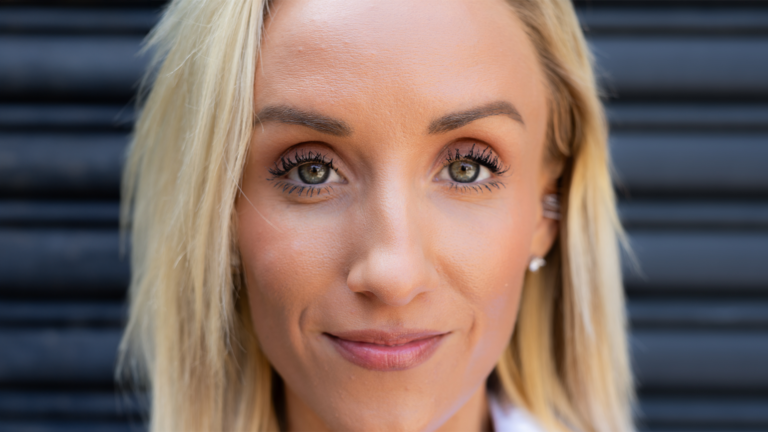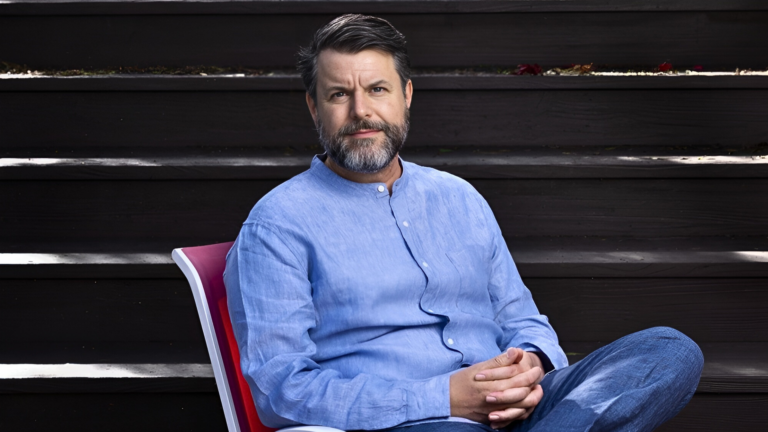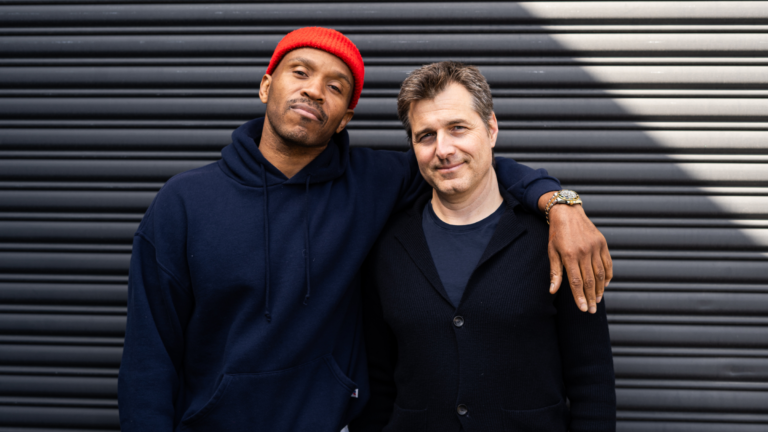This week’s conversation is with Soledad O’Brien, an award-winning documentarian, journalist, speaker, author and philanthropist.
She is dedicated to telling empowering and authentic stories on a range of social issues.
Soledad currently anchors and produces the Hearst Television political magazine program “Matter of Fact with Soledad O’Brien” and she also reports regularly for HBO’s “Real Sports with Bryant Gumbel.”
She has anchored shows on CNN, MSNBC and NBC, and hosted projects for Fox and A&E.
At CNN, she was the face of CNN’s morning news shows for many years and a frequent reporter and analyst for breaking news stories and election coverage.
She also anchored the CNN documentary unit, where she created the “In America” documentary series, which includes “Black in America” and “Latino in America.”
Soledad was recognized with three Emmy awards — for her coverage of the Haiti earthquake, the 2012 election and a series called “Kids and Race.”
So Soledad’s resume speaks for itself– she has a deep regard for her craft and more importantly: separating right from wrong.
On the surface, this movement, these protests, they’re about highlighting the injustices, the police brutality that many African-Americans have been prone to for far too long.
But it extends further than that.
This conversation is about accountability… we all play a role.
It’s up to us whether we’re the person who chooses to actively make a difference or turn a blind eye.
“As long as I’m alive, I’m just going to call out what I think is egregious gaslighting, lying, and dishonesty. If I can, then I will, because I think there needs to be a level of fairness.”
In This Episode:
Why perspective matters during such crazy times
The day my daughter graduated from high school… I’m not a very sentimental person. I’ve been telling her like, “Oh, get over it.” And I actually really got it. I felt badly for her. It almost feels like she’s not allowed to mourn, because, obviously, so many other people have it so much worse. And so, trying to find that line where, yes you get to mourn, but also recognize that you’re not sick, you’re not dying. Your parents haven’t lost their jobs. All of those things are important. I think that that’s what goes into my okay. Feeling like I have mastery over my situation and it’s a pretty okay situation. And thank God everybody’s healthy, and they get to run around a bit. But also recognizing like, “Wow, it’s just a messed up time.”
Her purpose
I think I can point out flaws and hold people accountable, at a time when I think it’s really important. Where sloppy journalism results in people getting killed, or people getting injured, or people getting deported. It’s a series of consequences. It’s not, everybody laughs it off, “Oh, can you believe we messed that up?” I think a lot of my purpose, of late, has just been the no bullshit, I’m going to call it as I see it.
When did she start having that freedom?
I think when I started my own company, about seven years ago. And I think that once you’re not working for somebody, it really makes a big… You just get to say, “Let me tell you a story about how things work, and what happened, et cetera, et cetera.” I think it probably really, really started then. Where I got to feel like, “Oh, I don’t have to not tell this embarrassing story.”
What standing up to racism actually looks like
A colleague said, “I put black people on TV.” And I said to him, “Sure, during a riot, you do. But do you advocate for diversity within your company, yet you have a voice, you have a platform? You could, but you don’t. Do you stand up for people when it’s awkward and uncomfortable?” Do you know how awful it is to have these conversations about race? I hated them. I always had to be like, “How many black people are hired for this new show? How many…” I mean, who wants to be that person? Everybody hates that person. I hate that person, and yet… I said to him, “It’s not very hard to book people for your show when this is the topic. The hard part is booking people for your show when this is not the topic, right?
How does her show “Matter of Fact” differ?
I think when we started doing Matter of Fact, it was really the first time I had bosses who were like, “No, no, we want to do that. We want true diversity, not, ‘You’re going to be the face of it, dude.” We’ve got Black History month, we got Women’s month. We got a couple, but hit those, make sure you get some veterans in there. Instead, it was like, “This is who our audience is. And we’re going to serve all these people.” This idea of, wow, you really could tell diverse stories without it being patronizing.
Where did her passion come from, to get to the truth?
I just am so against hypocrisy. It’s interesting, I’m one of six kids, and maybe that’s part of it. Because I think children have a very well honed sense of fairness and justice. When you’re one of six, you’re like, “Oh, this is what’s fair.”
Her issues with hypocrisy
I think one of the challenges that I’m having with the time that we’re in are people who talk about leadership, but when it comes to doing it, they can’t bring themselves to do it. I find that just very… Then don’t write a book about it. You want to be a terrible leader? Be a terrible leader, but don’t try to market yourself as a great leader. Don’t tell me how you’re a good leader, or don’t brag about being a good leader. You are a terrible leader. And I guess it’s the hypocrisy that I find really challenging.
How does she define leadership?
I think leadership is about being the one who is going to take one for the team, right? If you’re in charge, then you’re responsible for sticking up for people, for saying something, for standing up for what’s right. For espousing and speaking life into the values, whatever they are, of your company.
Seeing people stand for nothing
I think a lot of leadership is about being tested, and then having to decide, like, “No, this is what we believe.” And I think it’s the same as in parenting. And I think it’s the same as in just growing up. Like, who do I want to be around? What do I believe? In a crisis, what do I do? What are the decisions I make? What do I stand for? When the moment calls, what do I stand for? It’s been very troubling to me to see that, for a lot of people, they stand for nothing.
What has she come to learn about dealing with police brutality?
I think people will talk about George Floyd, or the young man who was the police officer who was killed in his own apartment by the off duty police officer, imagine, right? Or the woman who was a paramedic, right? I think we’d like to think of those as individuals. I think, for me, really, the lesson has been understanding that’s a system, that then it’s not individuals, right? That the individual is not the story. It’s that there’s a system around policing. The system is not working. We have to figure out how to make it work. I don’t think police officers are evil at all. I think it’s actually a very scary and difficult job, but there’s something systemically wrong
Actions speak louder than words
How do you say, “I really want to figure out how we have these conversations about race in America.” It’s like, step one, what’s happening within your own organization, and how do you fix it? And if you’re not willing to do that, then you really don’t care. And guess what? All of this will be over in two weeks so you can go back to hiding your head, it’ll all be fine. Put out a nice little statement, and it’ll all go away.
How does she stay positive in trying times?
I think it’s just being open to that the world is a very long path. And that it’s about experiences, and trying interesting things. And say yes to interesting things. There are just a lot of good opportunities. The idea that there’s only like five opportunities in the world, and that’s it, that just isn’t true. Circumstances change, then opportunities change.


